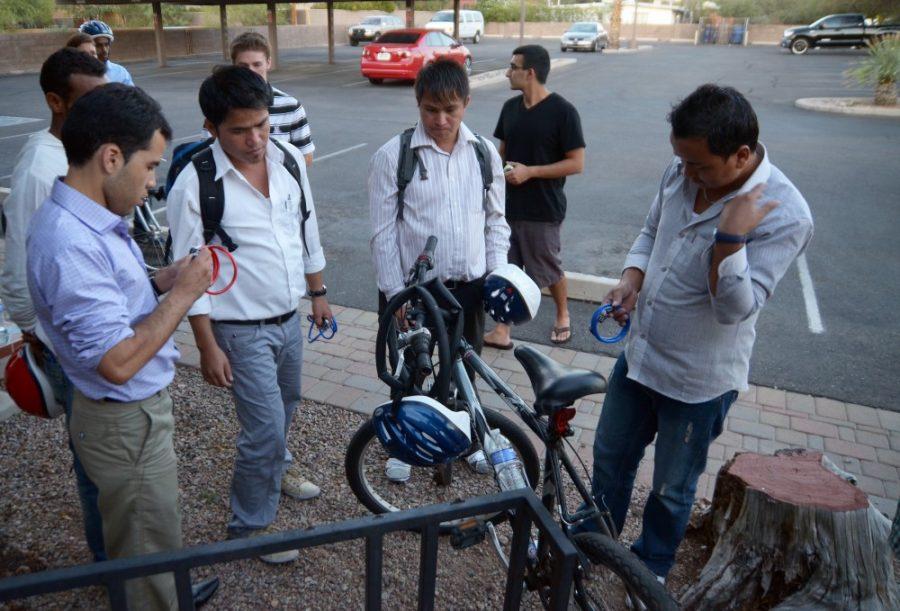UA students are helping Tucson refugees improve their mobility and self-sufficiency through the Arizona Refugee Connection’s Bicycle Drive and Safety Event.
Students, refugees and community members gathered at the International Rescue Committee headquarters on Tuesday afternoon to participate in the event. Refugees learned about bike safety and maintenance and received a donated bicycle, helmet, lock and bike lights. The Arizona Refugee Connection, a student-run group that provides supplemental services to refugees, collaborated with the International Rescue Committee, a global organization that helps refugees start over in new locations, on the project.
According to the Arizona Refugee Connection, transportation is a constant concern for many refugees and most walk, bike or take public transportation to commute throughout the city. The program aims to not only increase refugees’ mobility, but increase their employability, as well.
“By providing them (refugees) with bicycles, they have an easier way of transportation and an easier way of life,” said Ethan Don, an accounting junior and a member of the bike drive project.
The event included a bike maintenance workshop and a bicycle safety class conducted by the Pima County Bicycle and Pedestrian Program. After learning about the rules of the road, refugees went on a bike ride to test out their new wheels.
According to Andrew Jenkins, volunteer coordinator for the International Rescue Committee, the program is meant to help refugees find jobs and keep them. “Most clients arrive with just their luggage and their will to survive,” he said. “Having your own form of transportation is empowering.”
For Bal Pulami-monger, a refugee from Nepal, his new bicycle will benefit not only him, but also his family. Pulami-monger said he will use his bicycle to go grocery shopping, visit relatives and purchase medicine for his parents.
Six bikes were donated Tuesday, but the program will provide 25 bicycles for refugees by the end of the semester, said Sean Hanratty, a business economics junior. The refugees also received helmets, bike locks and bike lights during the program. Once they received their bicycles, the refugees learned how to put air in their tires and use a patch kit.
“Obtaining a bike is the first step,” said Cindi Gilliland, the Arizona Refugee Connection’s faculty adviser. “But being able to maintain it and ride it safely and protect it from theft are also crucial.”
Several departments in Tucson provided information and resources for the project, including the Pima County Department of Transportation and the Tucson Fire Department. The City of Tucson Department of Procurement donated many of the bicycles given to participating refugees.
Apukar Kadiye, a refugee who recently arrived from Kenya, said he typically takes the bus to get from place to place. Sometimes, the bus is late and he is forced to wait. Having a bicycle will make sure he can arrive on time, he said.
Currently, the program primarily provides bikes to job-seeking and employed refugees, Jenkins said, but it hopes to give bikes to all refugees who come to the committee. He said the program will be ongoing, and that he wants to continue collecting donations so refugees can have the tools they need to be successful in a new place.









